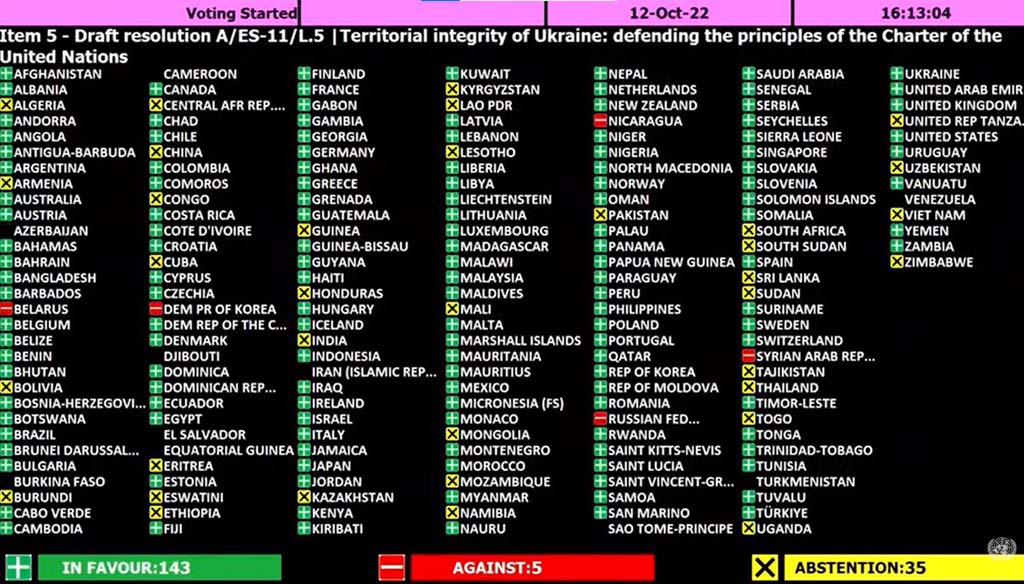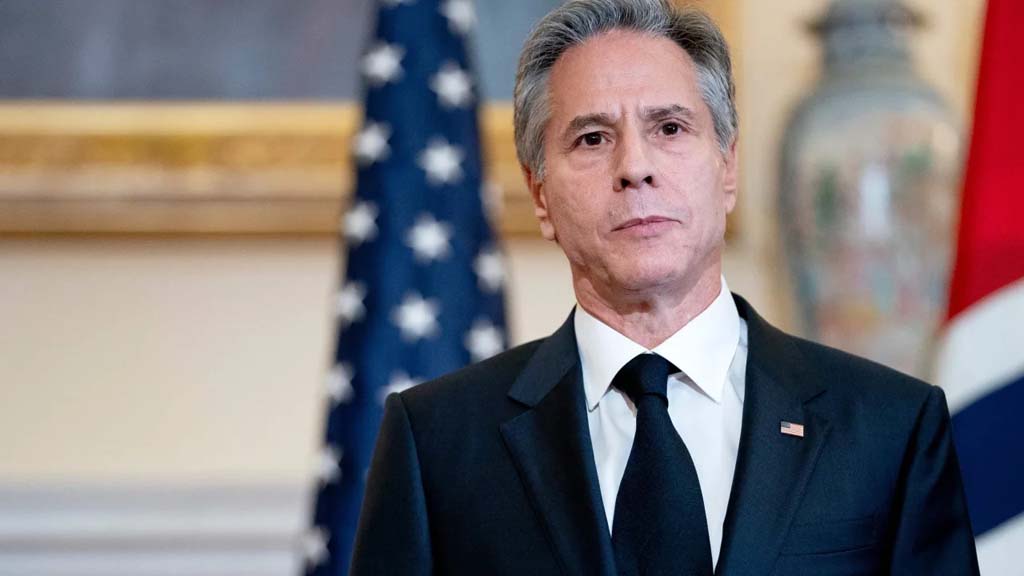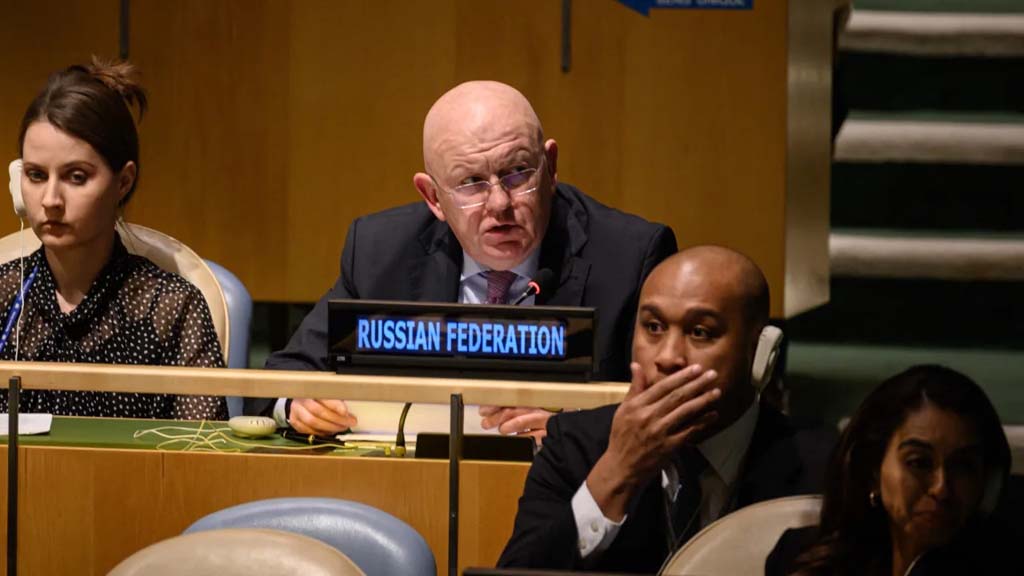U.S. diplomat Linda Thomas-Greenfield addresses the U.N. General Assembly.
DLNews Politics:
The U.N. General Assembly has condemned Russia's annexations of four Ukrainian regions in violation of international law by a historic majority. 143 of the 193 member states voted in favor of a resolution in the U.N.'s largest body in New York - five countries voted against it, and 35 abstained.

Voting against the resolution, in addition to Russia, were Syria, Nicaragua, North Korea, and Belarus. Among the states that abstained was Russia's strategically important partner China.
The resolution may not be binding under international law, but it shows: Moscow is isolated internationally!
Ukrainian President Volodymyr Selenskyj celebrated the adopted resolution as historic: "The world has spoken - Russia's annexation attempt is worthless and will never be recognized by free nations," he wrote on Twitter. U.N. representation wrote: "The international community has come together to defend the UN Charter. Unlike Russia, Ukraine does not stand alone."
U.S. U.N. Ambassador Linda Thomas-Greenfield called it a "monumental day for the United Nations."
U.S. Secretary of State Antony Blinken called the vote a "powerful reminder" that the overwhelming majority of nations stand with Ukraine. He said it showed that "international unity on this issue is unequivocal and support for Ukraine is unwavering."

U.S. Secretary of State Antony Blinken
E.U. Council President Charles Michel wrote on Twitter, "International community massively rejects Russia's attempted illegal annexation in #Ukraine." He said that protecting sovereignty and territorial integrity is at the UN Charter's core.

The Russian representative Vasily Nebenzya
Russia had vetoed a resolution condemning the annexations in the U.N. Security Council in late September. But: in the U.N. General Assembly, Russia has NO veto power against it. As a result, the annexation of the four Ukrainian regions of Luhansk, Donetsk, Kherson, and Zaporizhzhya is sharply criticized by the West and not recognized.
The result was even better than the 141 votes in the Assembly for a condemnation of Russia's invasion of Ukraine in March - and also than the 100 votes for a similar resolution following the annexation of Crimea in 2014.
Gulf states and neighboring countries dominated by Saudi Arabia voted in favor of the bill. Most recently, Riyadh had drawn Washington's ire by announcing a production cut for oil - which was seen as indirect support for Russia. Of the former Soviet republics, none voted with Moscow. Meanwhile, more than a dozen states from Africa abstained. Iran did not participate in the vote.
The outcome exceeded even forecasts by the biggest Western optimists. Observers had assumed before the vote that among many countries, especially in Africa and Latin America, a certain war-weariness and a dependence on Russia might lead to less support for the resolution.
But the violation of international borders appeared to be a red flag for many countries: in the emergency session of the General Assembly that began Monday, diplomats from dozens of countries had warned that every U.N. member country should have a vested interest in condemning Russia.
"Today, it is Russia that is invading Ukraine. But tomorrow, it could be another nation whose territory is being violated. It could be them. They could be next," U.S. Ambassador Thomas-Greenfield said.
The New York meeting took place against a backdrop of renewed bombing terror against Ukrainian civilians. According to Ukrainian sources, on Monday, Putin's forces fired 83 missiles at cities, including Kyiv and Lviv.
 News Staff
News Staff![]() -
-
Politics -
UN Assembly
-
1.4K views -
0 Comments -
0 Likes -
0 Reviews
-
-
Politics -
UN Assembly
-
1.4K views -
0 Comments -
0 Likes -
0 Reviews
![]() 0
0
0
290
4
0
0
0
290
4
Share this page with your family and friends.